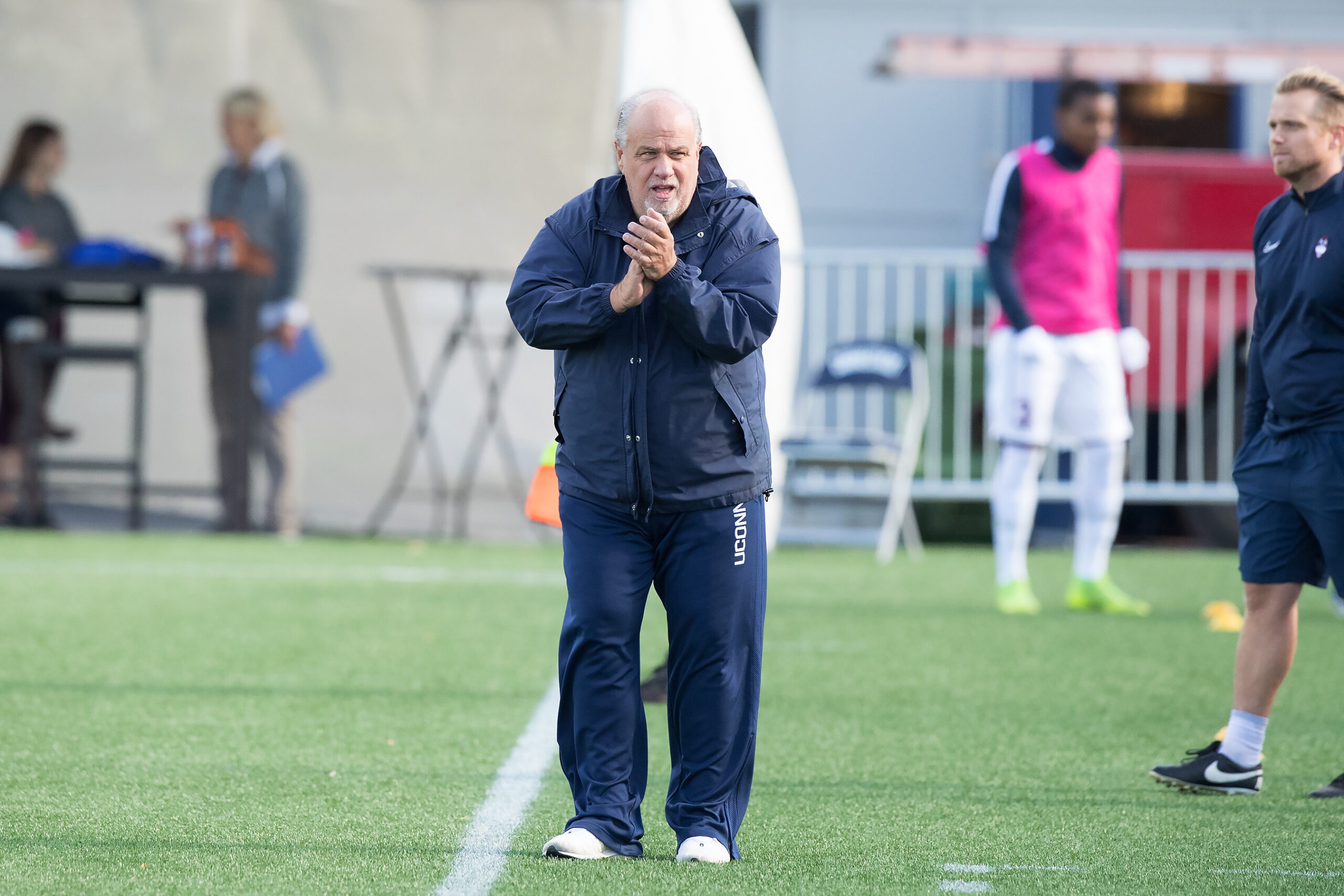
UConn Men’s Soccer Coach Ray Reid talks about Game Management, Perception & His Expectations of Officials
“Mental fitness is really important for officials because they have to make tough, controversial calls in games; while taking abuse from fans, coaches and players,” said University of Connecticut Men’s Soccer Coach Ray Reid, of why he thinks the mental side of an officials game is just as important as the physical side. “A referee’s success on the field depends on them being able to handle making that big call.”
Reid, who is the third winningest active soccer coach in the National Collegiate Athletic Association (NCAA), with 25 tournament berths and four National Championships to his credit, explained that a referee’s ability to manage a game is the most important thing, with respect to an official’s credibility. And, he believes perfecting the intangible side of an official’s game is key factor in a referee’s management abilities.
“Referee’s need to be able to manage the overall game and all its moving pieces,” Reid said. “They have to be confident, be a leader, have a high level of fitness, professional, willing to make that tough call and most importantly, be able to manage kids.”
“So often, we see official’s referee like they are giving a clinic, throwing cards instead of having a conversation,” he added. “Communication is so very important and a necessary tool to be able to manage players. I believe a good referee manages a game without using cards.”
Being a good referee and knowing how to effectively use his ‘tools’, like communication, often comes with a high level of confidence. An official’s level of confidence will influence how he behaves, including his reactions to events on the field and his thought patterns in those situations; both key contributors to his success in managing a game. Referees with a higher level of confidence are more accurate in their decision making, more effective in their performance, more committed to their profession, have more respect from coaches, players and ultimately experience less stress. On the other hand, a lack of confidence can lead to errors in judgement, delayed reactions, lapses in attention, more stress and burnout.
“I think too many officials officiate by the book versus doing what’s best for the game,” Reid went on. “I think a confident referee uses his common sense, has a feel for the game and ultimately a feel for managing people; and communication is key.”
For some official’s communication skills are innate and for others they are learned. Communication skills go far beyond verbal skills, however. Non-verbal cues like presence, professionalism, mechanics, perceived motivation, effort and even the way an official dresses, communicates something to coaches and players.
“Perception becomes reality,” said Reid. “If I don’t know an official, I usually watch what he does pre-game and I can usually tell what I am going to get from him during the game.”
“A few years ago, I had a guy show up for a Sweet 16 match in sweats, gloves, a turtleneck and other ‘winter gear’,” he explained. “Sure, I understand it was cold, but he looked very unprofessional and like he didn’t want to be there.”
“My players cannot dress like that, nor would they,” he added. “So I think officials should look the part as well. His performance was indicative of what he looked like.”
No matter what the level of game, it is important that all officials dress professionally and give the game their best effort. In many cases, a coach or a player’s perception becomes reality. Reid went on to explain how coaches treat referees differently, based on their knowledge of a referee and confidence in them. If the non-verbal cues of an official look unprofessional, chances are they will immediately be judged that way.
“Relationships, respect and past performance are key,” said Reid. “I hold the referees to a high standard, but also have respect for those officials who are confident enough to communicate with me and my players, whether we agree with the call or not. Conversely, if a coach recognizes that a referee is not confident, isn’t communicating and looks like they are unsure of themselves, they will ultimately ‘work them’ for calls.”
What Coach Reid is talking about is ‘Gamesmanship’, which is essentially the concept of coaches and players who perceive a referee without confidence and use specific tactics to gain a psychological advantage.
While Reid explained that he holds his officials to a higher standard, he also brought up the intense schedule in the college game that puts officials in situations where their mental and physical performance is constantly being stretched.
“The way college soccer schedules are laid out, often times referees are asked to do too many games in too few days,” he explained. “Their intense schedule effects physical fitness, which in turn effects their mental fitness and ultimately their overall performance.”
“In the college game, it often comes down to six to eight big calls per game,” he went on. “And officials have to be both physically and mentally fit to make decisions.” He also added that being an athlete themselves is an asset for officials because ‘they have a better understanding what is at stake’.”
While ultimately preparing for the match and all its moving pieces is essential to managing any game, understanding and perfecting the ‘intangible’ side of an official’s game is key and what mental fitness is all about.



GREAT article! I hope all soccer officials get a chance to read this.